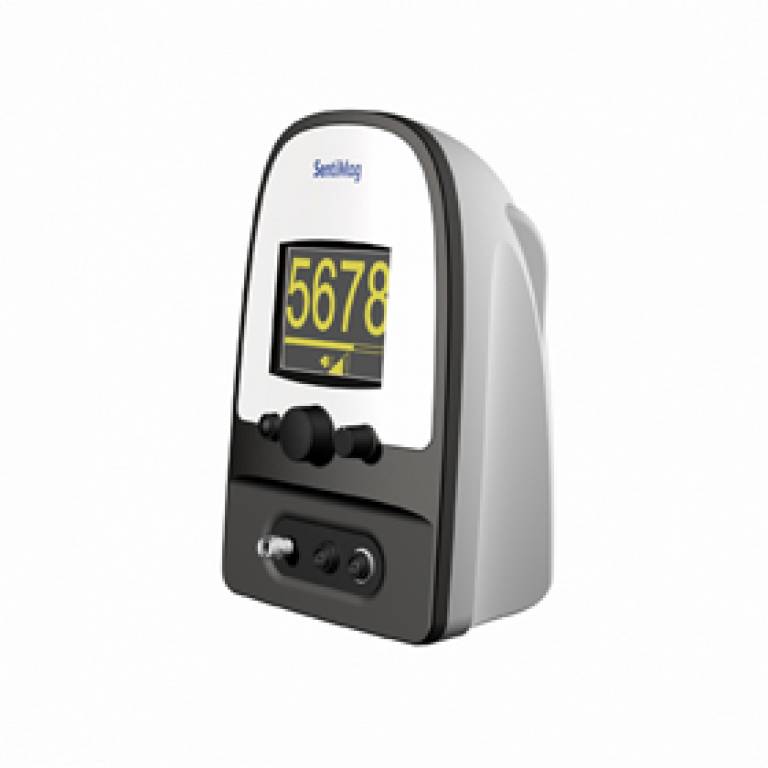Funding for Endomagnetics Limited
1 October 2009
Links:
 ucl.ac.uk/enterprise" target="_self">Enterprise at UCL
ucl.ac.uk/enterprise" target="_self">Enterprise at UCL UCL Business PLC, UCL's knowledge transfer and technology commercialisation company, today announced that it has led an initial investment round of £350,000 into a magnetic sensing technology company, Endomagnetics.
Co-investors in the investment round were the Combined London Colleges University Challenge Seed Fund (CLCUC), Bloomsbury Bioseed Fund (BBSF), together with the founders and their friends and families.
Endomagnetics is a spinout company which is commercialising magnetic sensing technology arising from research within the London Centre for Nanotechnology at UCL and the Texas Centre for Superconductivity at the University of Houston.
The company's first product is a medical device for use in the treatment of breast cancer. Globally, 1.25 million new cases of breast cancer are diagnosed each year, whilst lifestyle changes and the availability of healthcare mean that this figure is increasing by around 20,000 cases year on year, in both the developed and the developing world. In practically all of these cases, surgery is required to remove the tumour. During the surgical procedure it is desirable to excise the sentinel lymph nodes and inspect them microscopically to determine whether the cancer has spread from the tumour to other sites in the body.
However, current methods of sentinel node detection present inherent and significant barriers to widespread adoption of the procedure. A key reason is that the current method is based on radiation. Locating the sentinel nodes involves injecting a radioactive dye into the lymph around the tumour. This then passes through the lymphatic system and collects in the sentinel nodes; the surgeon then uses a hand-held gamma probe to locate the node. However the use of this dye presents the hospital administration with a significant, and expensive, logistical burden. In addition to this, patients tend to be reluctant to receive a radioactive injection.
Endomagnetics Ltd's approach to lymph node location takes a radically different approach. It uses a detection system based on magnetics rather than radiation, with the radioactive dye being replaced by a magnetic resonance imaging (MRI) contrast agent and a novel hand-held magnetic sensor replacing the gamma probe. This considerably simplifies the pre- and post-operative hospital procedures for sentinel lymph node biopsy, as hospitals and surgeons are freed from the constraints imposed by the use of radioactive materials.
Based on 2007 cancer statistics and market research on the gamma probe market, of the 610,000 breast cancer and melanoma cases treated that year in the North America, Western Europe, Japan and Australasia, only 153,000 were addressed using the gamma-probe, indicating that there is a significant unmet need and a potential market worth at least £300 million, depending on the pricing and chosen sales model. Furthermore, the Endomagnetics solution provides a sensing platform that has applicability to other medical markets including the staging of lung, prostate and colon cancer, of which there were approximately 2,630,000 cases per annum in North America, Western Europe, Japan and Australasia in 2007.
Professor Quentin Pankhurst, Founder of Endomagnetics commented, "Endomagnetics' vision is to transform the way that the staging of breast cancer is undertaken and ensure that patients across the world have access to a vital component of the breast cancer staging process. This investment will enable us to accelerate our development activity and engage with clinical adopters across the US and Europe."
Dr Steven Schooling, Director of Engineering & Physical Sciences at UCL Business said:
"Endomagnetics is capitalising on a innovative technology developed within the research labs of two world class research centres at UCL and Houston, which has the potential for use across a wide range of clinical conditions. UCL Business has worked closely with Professor Pankhurst and his colleagues from the initial proof-of-concept activities through to the raising of investment finance and we wish the team every success with their future plans."
About UCL Business
UCL Business PLC is the organisation responsible for commercialising research across all disciplines generated from within UCL and associated organisations. It is primarily responsible for protecting inventions and transacting commercial activity including options, licences and collaborative commercial research. UCLB also has responsibility for creating and spinning-out companies from UCL. UCLB is wholly-owned by UCL and operates as an independent company with its own Board of Directors.
 Close
Close

